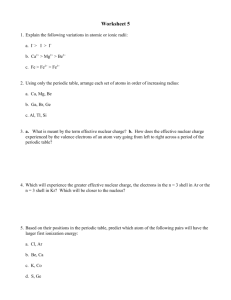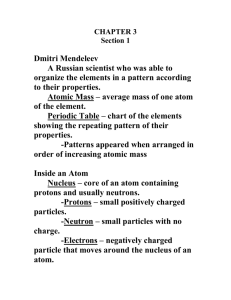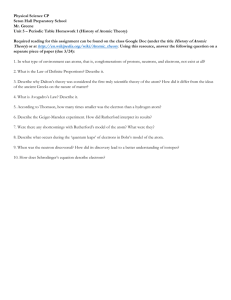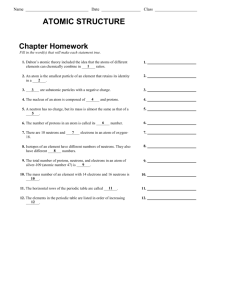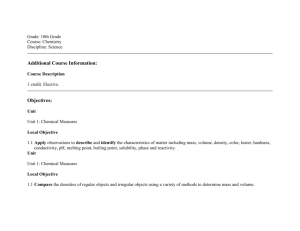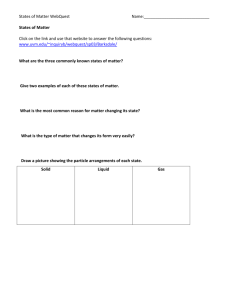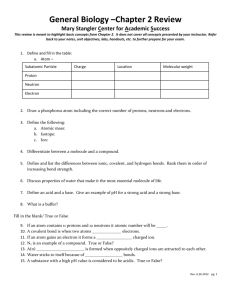The Periodic Table
advertisement
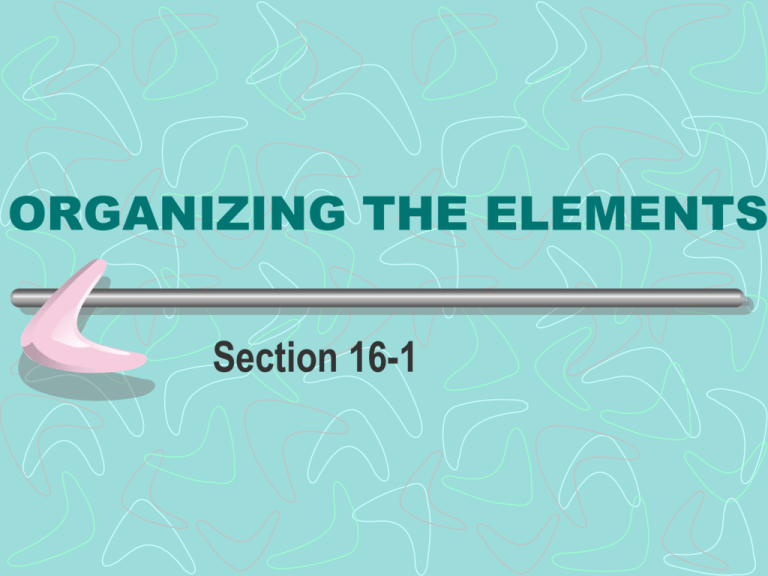
ORGANIZING THE ELEMENTS Section 16-1 Why is the PERIODIC Table important? • Periodic – regular, repeating pattern. • Days of the year are organized on a calendar. • Periodic table is the most useful tool to a chemist. • It organizes lots of information about all the known elements. • You get to use it on most tests. Pre-Periodic Table Chemistry … • …was a mess!!! • No organization of elements. • Imagine going to a grocery store with no organization!! • Difficult to find information. • Chemistry didn’t make sense. • DISCOVER Activity on page 500 – Partner activity – 4 sets of 10 numbers in various colors Dmitri Mendeleev: 1869 Father of the Periodic Table HOW HIS WORKED… • Recognized a hidden pattern • Put elements in rows by increasing atomic mass. (average mass of one atom of an element) • Put elements in columns by the way elements reacted or the bonding power. SOME PROBLEMS… • He left blank spaces for undiscovered elements and predicted their properties. (Turned out he was right!) • He broke the pattern of increasing atomic mass to keep similar reacting elements together. Structure of an Atom The Periodic Table and The ATOM Electron Cloud or Electron Shell •Outside the nucleus of an atom •Most of the volume of an atom •Negative electrons (1/2000 amu) •Electrons move constantly and rapidly around the nucleus Nucleus •Tiny core of an atom •Most of the mass of an atom •Positive protons (1 amu) •Neutral neutrons (1 amu) An Atom on the Periodic Table 26 Atomic Number P or E •Element’s identity (social security number) • Protons (also Electrons) Atomic Symbol •One or two letter symbol •First letter is always capital Iron 55.847 Atomic Name •Origins in greek or latin root words Atomic Mass (P + N) •Protons (unique) + Neutrons (varies) •Average mass of one atom The Modern Periodic Table • Mendeleev wasn’t too far off. The 3 missing elements were discovered within 16 years. • Now the 100+ elements are put in rows by ATOMIC NUMBER!! increasing • The horizontal rows are called periods and are labeled from 1 to 7. • The vertical columns are called groups or families are labeled from 1 to 18. Exploring the Periodic Table Valence Electrons – Why It Works! VALENCE ELECTRONS •Located in the outermost shell •Involved in bonding •HAPPY ATOM is when the outermost shell is full Load electrons from the inside to the outside shell 1st shell – 2 electrons 2nd shell – 8 electrons 3rd shell – 8 electrons Valence Electrons – Outermost Shell The Modern Periodic Table
